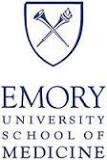Phase I/II Trial of VELCADE Plus Zevalin in Patients With Relapsed or Refractory Follicular Lymphoma
| Status: | Terminated |
|---|---|
| Conditions: | Lymphoma |
| Therapuetic Areas: | Oncology |
| Healthy: | No |
| Age Range: | 18 - Any |
| Updated: | 11/22/2018 |
| Start Date: | July 24, 2007 |
| End Date: | July 8, 2013 |
A Phase I/II Trial of Combined Weekly Bortezomib (VELCADE®) and Y-90-Ibritumomab Tiuxetan (Zevalin) in Patients With Relapsed or Refractory Follicular Lymphoma and Transformed Non-Hodgkin's Lymphoma
Bortezomib may stop the growth of cancer cells by blocking some of the enzymes needed for
cell growth. Monoclonal antibodies, such as rituximab, can block cancer growth in different
ways. Some block the ability of cancer cells to grow and spread. Others find cancer cells and
help kill them or carry cancer-killing substances to them. Radiolabeled monoclonal
antibodies, such as yttrium Y 90 ibritumomab tiuxetan, can find cancer cells and carry
cancer-killing substances to them without harming normal cells. Giving bortezomib together
with rituximab and yttrium Y 90 ibritumomab tiuxetan may kill more cancer cells.
This phase I/II trial is studying the side effects and best dose of bortezomib when given
together with rituximab and yttrium Y 90 ibritumomab tiuxetan and to see how well they work
in treating patients with relapsed or refractory follicular non-Hodgkin's lymphoma.
cell growth. Monoclonal antibodies, such as rituximab, can block cancer growth in different
ways. Some block the ability of cancer cells to grow and spread. Others find cancer cells and
help kill them or carry cancer-killing substances to them. Radiolabeled monoclonal
antibodies, such as yttrium Y 90 ibritumomab tiuxetan, can find cancer cells and carry
cancer-killing substances to them without harming normal cells. Giving bortezomib together
with rituximab and yttrium Y 90 ibritumomab tiuxetan may kill more cancer cells.
This phase I/II trial is studying the side effects and best dose of bortezomib when given
together with rituximab and yttrium Y 90 ibritumomab tiuxetan and to see how well they work
in treating patients with relapsed or refractory follicular non-Hodgkin's lymphoma.
This is a phase I, dose-escalation study of bortezomib followed by a phase II study.
Phase I:
- Induction therapy: Patients receive bortezomib IV over 3-5 seconds on days 1, 8, 15, and
22, rituximab IV on days 8 and 15, and yttrium Y 90 ibritumomab tiuxetan IV over 10 minutes
on day 15.
Cohorts of 3-6 patients receive escalating doses of bortezomib until the maximum tolerated
dose (MTD) is determined. The MTD is defined as the dose preceding that at which 2 of 6
patients experience dose-limiting toxicity.
- Consolidation therapy: Beginning 6-7 weeks after completing induction therapy, patients
receive bortezomib IV over 3-5 seconds on days 1, 8, and 15. Treatment repeats every 28 days
for 3 courses in the absence of disease progression or unacceptable toxicity.
Phase II: Patients receive induction therapy and consolidation therapy as in phase I, with
bortezomib administered at the MTD determined in phase I.
After completion of study treatment, patients are followed every 3 months for 1 year, every 6
months for 1 year, and then annually thereafter.
A total of 24 patients will be accrued for this study.
Phase I:
- Induction therapy: Patients receive bortezomib IV over 3-5 seconds on days 1, 8, 15, and
22, rituximab IV on days 8 and 15, and yttrium Y 90 ibritumomab tiuxetan IV over 10 minutes
on day 15.
Cohorts of 3-6 patients receive escalating doses of bortezomib until the maximum tolerated
dose (MTD) is determined. The MTD is defined as the dose preceding that at which 2 of 6
patients experience dose-limiting toxicity.
- Consolidation therapy: Beginning 6-7 weeks after completing induction therapy, patients
receive bortezomib IV over 3-5 seconds on days 1, 8, and 15. Treatment repeats every 28 days
for 3 courses in the absence of disease progression or unacceptable toxicity.
Phase II: Patients receive induction therapy and consolidation therapy as in phase I, with
bortezomib administered at the MTD determined in phase I.
After completion of study treatment, patients are followed every 3 months for 1 year, every 6
months for 1 year, and then annually thereafter.
A total of 24 patients will be accrued for this study.
Inclusion Criteria:
- Histologically confirmed follicular lymphoma
- CD20+ at time of diagnosis or subsequently
- More than 4 weeks since prior rituximab
- More than 3 weeks since prior anticancer therapy (6 weeks for nitrosourea or mitomycin
C)
- More than 4 weeks since prior major surgery
- More than 2 weeks since prior investigational drugs
Exclusion Criteria:
- AIDS-related lymphoma
- History or evidence of CNS involvement
- Pregnant or nursing
- known HIV positivity
- serious medical or psychiatric illness that would preclude study participation
- myocardial infarction within the past 6 months
- congestive heart failure, uncontrolled angina, severe uncontrolled ventricular
arrhythmias, or ECG evidence of acute ischemia or active conduction system
abnormalities
- known hypersensitivity to rituximab, bortezomib, boron, or mannitol
- prior autologous or allogeneic stem cell transplantation
- prior radioimmunoconjugate therapy or prior exposure to murine antibodies
- prior external-beam irradiation to > 25% of active bone marrow
We found this trial at
2
sites
Emory University School of Medicine Emory University School of Medicine has 2,359 full- and part-time...
Click here to add this to my saved trials
Click here to add this to my saved trials
